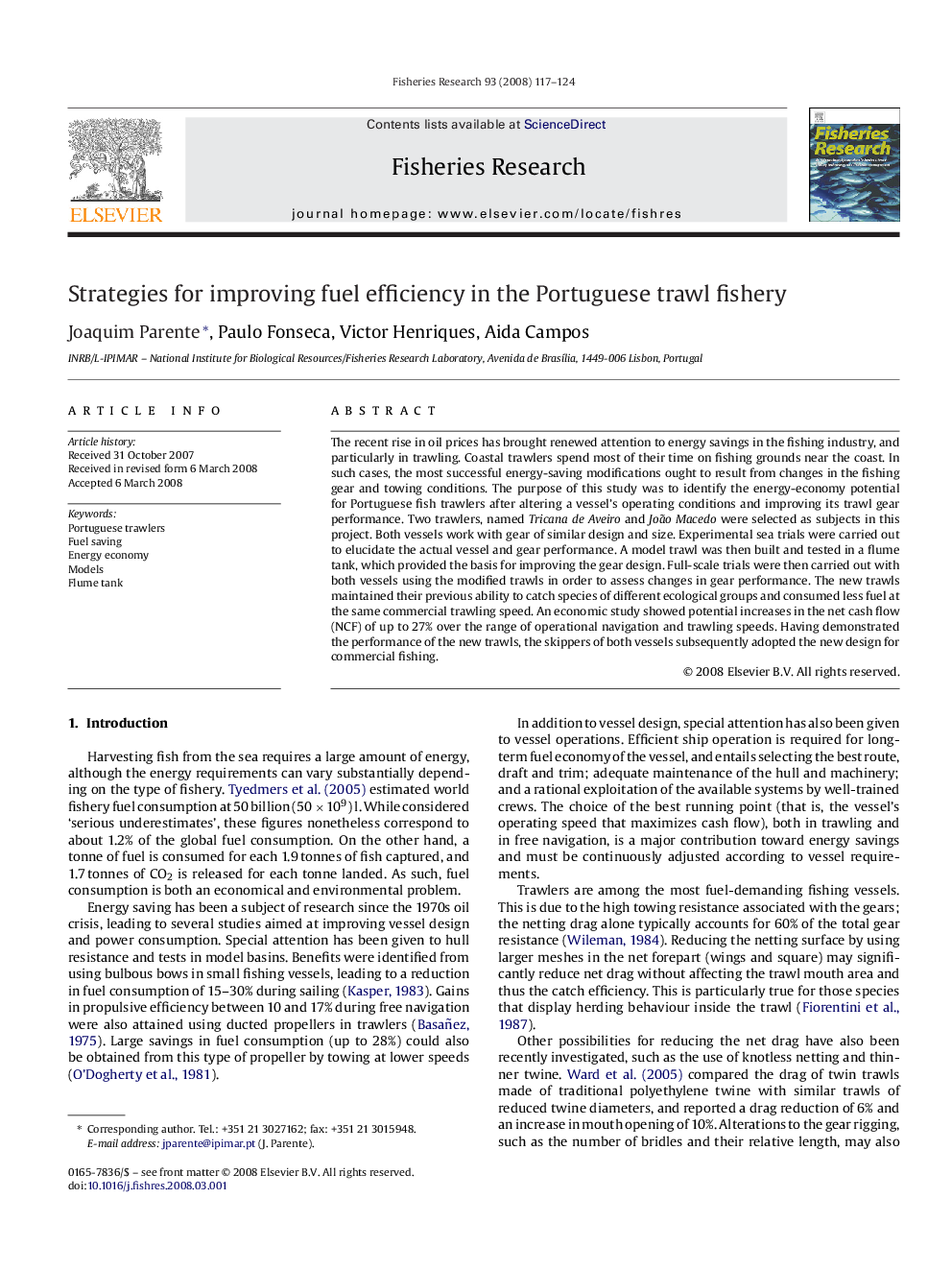| Article ID | Journal | Published Year | Pages | File Type |
|---|---|---|---|---|
| 4544281 | Fisheries Research | 2008 | 8 Pages |
The recent rise in oil prices has brought renewed attention to energy savings in the fishing industry, and particularly in trawling. Coastal trawlers spend most of their time on fishing grounds near the coast. In such cases, the most successful energy-saving modifications ought to result from changes in the fishing gear and towing conditions. The purpose of this study was to identify the energy-economy potential for Portuguese fish trawlers after altering a vessel's operating conditions and improving its trawl gear performance. Two trawlers, named Tricana de Aveiro and João Macedo were selected as subjects in this project. Both vessels work with gear of similar design and size. Experimental sea trials were carried out to elucidate the actual vessel and gear performance. A model trawl was then built and tested in a flume tank, which provided the basis for improving the gear design. Full-scale trials were then carried out with both vessels using the modified trawls in order to assess changes in gear performance. The new trawls maintained their previous ability to catch species of different ecological groups and consumed less fuel at the same commercial trawling speed. An economic study showed potential increases in the net cash flow (NCF) of up to 27% over the range of operational navigation and trawling speeds. Having demonstrated the performance of the new trawls, the skippers of both vessels subsequently adopted the new design for commercial fishing.
